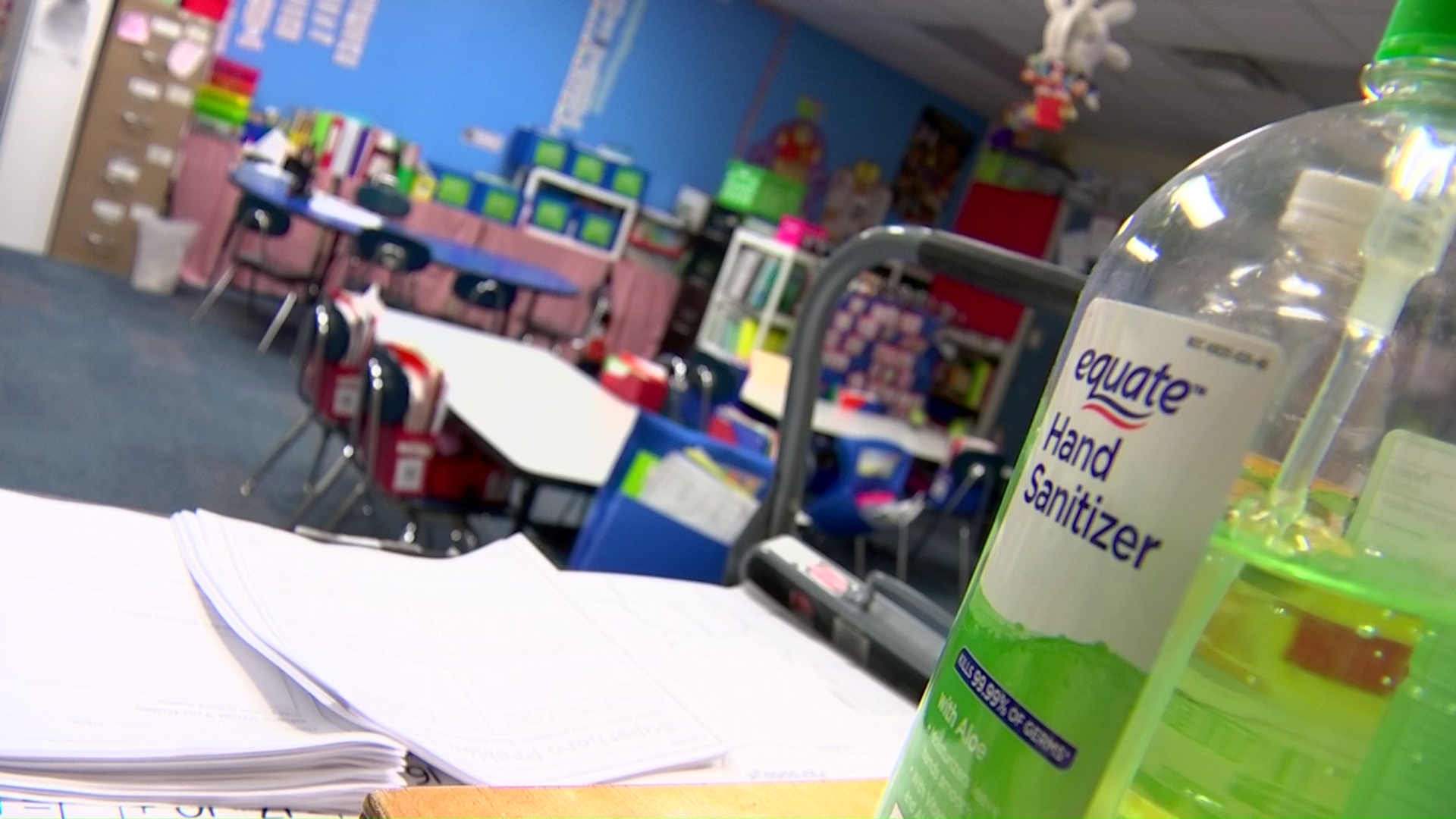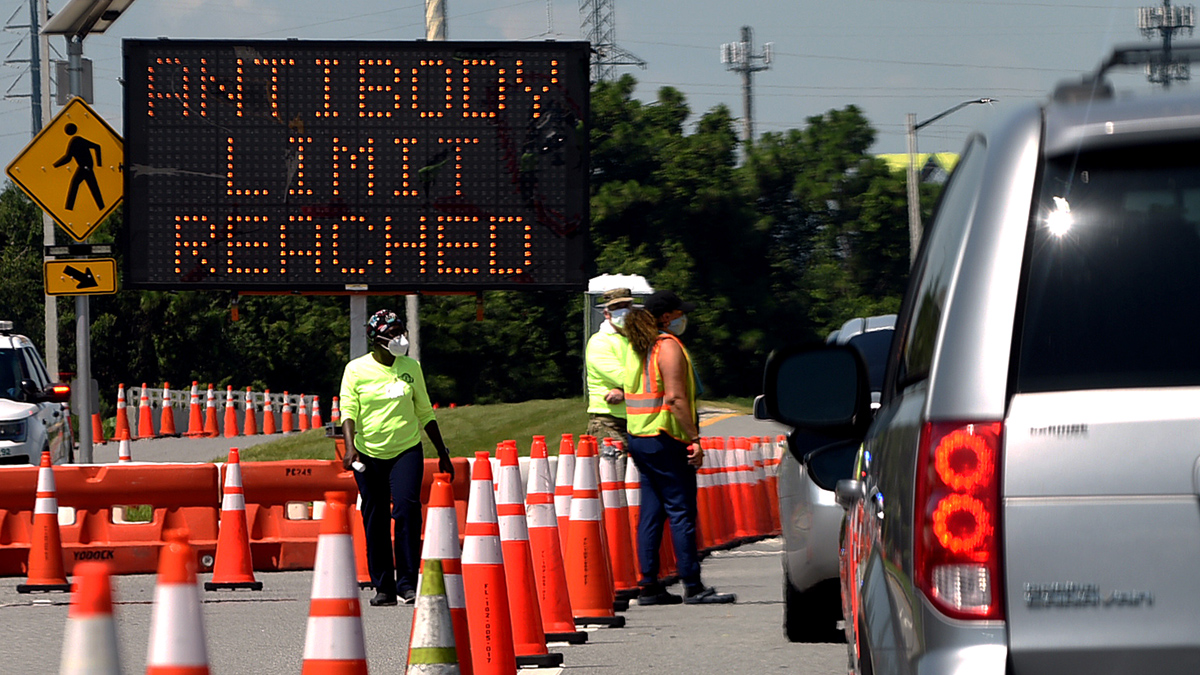Note: Press conferences from Gov. J.B. Pritzker or Chicago Mayor Lori Lightfoot will be streamed live in the video player above.
Both Chicago Mayor Lori Lightfoot and Illinois Gov. J.B. Pritzker were scheduled to speak Wednesday, with Pritzker delivering a COVID-19 update and Lightfoot discussing the 2020 Census.
Their appearances come as student athletes across the state are awaiting a major decision on what may happen with sports programs in the fall.
Here are the latest coronavirus updates from around Illinois today, July 29:
IHSA Announces Decision on Sports After State Releases New Guidance
The Illinois High School Association announced its plan for the 2020-21 school year Wednesday, moving some fall sports to the spring and allowing others to continue as planned with restrictions.
Under the current plan, boys and girls golf, girls tennis, cross country and girls swimming and diving will remain as fall sports and will begin on Aug. 10, as scheduled. Football, boys soccer and girls volleyball will be moved from the fall to the spring, officials said.
The association announced a "condensed" schedule which includes:
Fall: Aug. 10 to Oct. 24
Winter: Nov. 16 to Feb. 13
Spring: Feb. 15 to May 1
Summer: May 3 to June 26
- See the full schedule by sport here
“This plan, like nearly every aspect of our current lives, remains fluid,” IHSA Executive Director Craig Anderson said in a statement Wednesday. “Changes may come, and if they do, we will be agile while putting safety and students first. It was important that we provide a framework today for our student-athletes, coaches, administrators, and officials to begin preparing for the 2020-21 school year.”
Gov. Pritzker Announces New Restrictions for Recreational Sports, Including at Schools
Fall sports in schools will be forced to face added restrictions under new guidance from Illinois' health department, the state's governor announced Wednesday.
Gov. J.B. Pritzker said the state will be "restricting youth and adult recreational organized sports," including school-based sports, beginning Aug. 15. The restrictions do not include professional or collegiate sports.
Pritzker said each sport will be categorized under three "risk levels" - high, medium and low - determined by "the amount of contact between athletes and their proximity during play." Still, certain sports may be able to move forward with their seasons in the fall under the new restrictions.
- See a full breakdown by sport here
"This isn't news that anyone wants to hear, but this virus remains dangerous," Pritzker said during his press conference Wednesday.
Lightfoot Discusses 2020 Census
Chicago Mayor Lori Lightfoot made a public appearance Wednesday morning to "announce a new campaign to encourage participation in the 2020 U.S. Census."
The news conference was held at around 9:15 a.m. at the DuSable Museum.
Pritzker to Deliver COVID-19 Update
Gov. J.B. Pritzker is scheduled to deliver a COVID-19 update, according to his public schedule.
The news conference will be held beginning at around 12 p.m. from the Thompson Center in downtown Chicago, his office says. The event can be watched live in the video player above.
IHSA Expected to Make Decision on Fall Sports
Student athletes across Illinois are awaiting a major decision from the state on Wednesday about what will happen with sports programs in the fall.
The Illinois High School Association is receiving guidance from state health officials and plans to hold its private board meeting on Wednesday. A spokesperson from IHSA said a decision isn’t anticipated until after that meeting.
The IHSA has a number of options to consider, including but not limited to: canceling the fall season all together, postponing it to winter or spring (condensing the seasons together), or allowing non-contact fall sports.
The least likely option seems to be business as usual as coronavirus cases continue to rise. Those close to Gov. J.B. Pritzker have already hinted that fall sports aren’t likely.
"IHSA has said that they’re basically going to get out of the business in the fall," Pritzker said at a recent news conference.
For Chicago athletes in particular, the decision weighs heavily, given that last year's fall sports were cut short due to the Chicago Teachers Union strike.
Parents Express Concerns After Private Prom Held Across Border in Indiana
The Will County Health Department is collecting information to see if a private prom attended by teens from a suburban high school might be linked to any potential coronavirus cases.
In recent days, officials have seen an increase in coronavirus cases in the Frankfort area after a private prom was held just across the Indiana border last week.
The private event was held in Hobart, Indiana for approximately 250 kids and chaperones from Lincoln Way East High School last week.
Organizers for the event say that masks were provided to everyone who attended, with proceeds generated from an online campaign and from ticket sales.
“We spaced out tables, we cut down on the number of people who could sit at tables, and we cut down on the number of people we could have at the event,” Caeelin Flaherty, a student organizer, said.
Even with those precautions, some parents say they are concerned, saying that they are seeing an unusual amount of COVID-19 cases and sick teens in the days following the event.
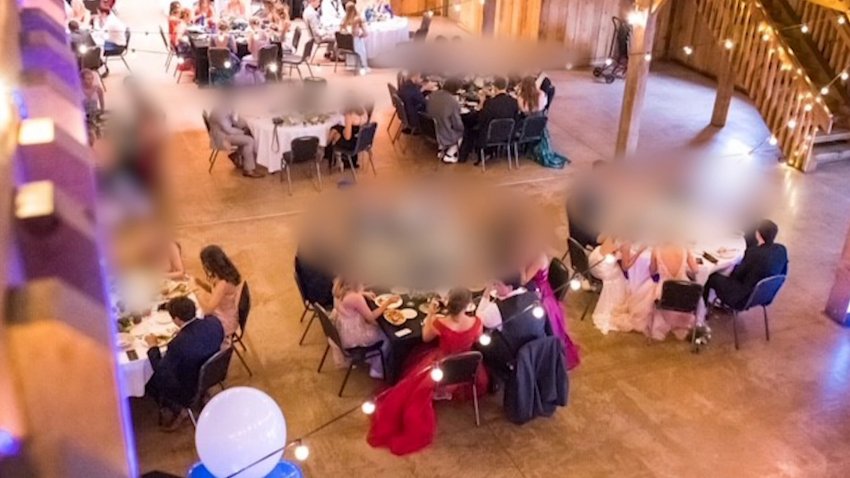
“When you bring that many people together, even if you’re social distancing, you are taking a risk,” Kristin Eaton, a mother of a teen who attends Lincoln Way East, said.
Eaton says that her son was called into work this week because four fellow teens, coworkers of his, had to call off because they were being forced to quarantine. Others have tested positive, affecting businesses who rely on the teens to work at the locations during the summer.
“A number of her employees were kids at school that weren’t able to come to work because they had to quarantine for two weeks,” Eaton said.
Eaton says that photos on social media showed kids at the prom not wearing masks and not social distancing, but organizers say they were adamant that attendees follow the rules.
“We tried to do everything correctly for CDC guidelines and Indiana state guidelines,” Flaherty said.
Dr. Sital Bhargava says that any kids who potentially were exposed to COVID-19 could now be exposing others to the virus as well, and says that allowing kids to attend an event in another state, which has different coronavirus restrictions in place, isn’t helpful in terms of stopping the spread of the virus.
“I don’t think they could have had that many kids and done it safely,” Dr. Bhargava said. “I think it had to be smaller groups.”
As of Tuesday, NBC 5 Investigates data shows that Frankfort has reported 242 cases of coronavirus, and while that data does show a climb in cases, it’s been more gradual, rather than a rapid spike.
“We’re inching up every day,” Bhargava said. “Our main goal should be flattening the curve, and we’re going in the opposite direction. So I’m sure it plays a part in the numbers.”
The Will County Health Department confirmed Tuesday that it is collecting information and is looking into the prom, to see whether or not students attending the event are indeed potentially spreading the virus.
Illinois Attorney General Among Those Who Received Fraudulent Unemployment Benefits Card
Tens of thousands of Illinois residents have applied for unemployment insurance benefits, but it's the people who haven't that need to beware. Illinois Attorney General Kwame Raoul is urging residents throughout Illinois to be on alert for signs of identity theft related to unemployment insurance, including pre-paid debit cards issued by KeyBank.
Raoul’s office has received dozens of complaints from people throughout the state who learned that someone applied for unemployment insurance benefits in their name.
“People should be on the lookout for a letter approving them for unemployment benefits they never requested, because it likely means that an identity thief applied for benefits using their name and Social Security number,” Raoul said.
He should know, because he received one himself.
“They're not in lonely company, you know. I myself was a recipient of a such a card so I had to also take some steps,” he said.
He warns the combination of the pandemic and increased time on the internet could be the perfect recipe for fraud.
“If they're not careful enough they may be sharing some information or giving folks access to ways to get more information on them, and so unfortunately it happens to the best of us, you know. So, it's important to take steps,” he said.
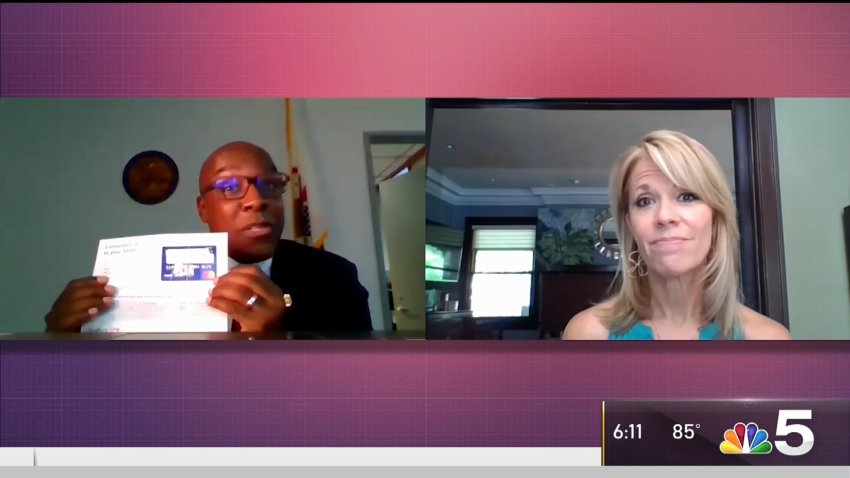
The scam has also gained the attention of Illinois Gov. J.B. Pritzker.
“Federal authorities have informed states that your personal identifying information may likely have been obtained in prior breaches of corporations or other databases like the massive Equifax hack, that means it’s possible that your personal identifying information was used in this scheme,” he said last Wednesday during a press conference. “This is a problem being experienced across the country, because the national program was poorly designed and susceptible to fraud.”
Raoul says it’s still not known, but likely, that fraudsters are filing for the debit cards, then will attempt to fish them out of mailboxes before unsuspecting recipients know. Another possibility includes thieves waiting until the debit cards are used to then try to hack into the bank accounts.
What is known: this scam is surging. Any potential victim who receives an unsolicited card is being asked to contact local authorities and the Illinois Department of Employment Security at 800-814-0513. They can also contact the Illinois Attorney General’s office. Raoul urges all affected to take steps to guard against identity theft, including monitoring their credit.
“We don't know what the scammers endgame is yet. Investigators are still trying to catch up with that,” Raoul said. “The types of fraud that we deal with these days, generally, particularly when they can come from all places, internationally, as vigilant as we try to be with investigations we may not get to the entire route of fraud because it's difficult because you know, with web access and, and, and how everything is done, virtually electronically now."
Cook County Updates Emergency Travel Guidance to Include 22 States
The Cook County Department of Public Health's emergency travel guidance now directs travelers from 22 states to quarantine for 14 days.
The guidance mirrors Chicago's travel order, which also requires anyone visiting or returning to the city from one of 22 states to self-quarantine for two weeks.
Cook County, which includes several suburbs surrounding Chicago, will follow the same list of states as the one taking effect in the city Friday. The county's list, updated every Tuesday, included four more states this week: Wisconsin, North Dakota, Nebraska and Missouri.
The full list of states on Cook County's travel order now includes:
- Florida
- Louisiana
- Mississippi
- Arizona
- Alabama
- Georgia
- Tennessee
- Nevada
- South Carolina
- Oklahoma
- Texas
- Idaho
- Arkansas
- California
- Missouri
- North Carolina
- Utah
- Wisconsin
- North Dakota
- Iowa
- Kansas
- Nebraska
“We have come a long way in Cook County and Illinois and we want to keep it that way,” Cook County Department of Public Health Co-Lead and Senior Medical Officer, Dr. Rachel Rubin, said in a statement when the guidance was first launched. “It is summer and we know people want to travel, but we have to remain vigilant to keep our gains and avoid having to close places we’ve only just reopened.”
Northwestern Launches Registry to Find Coronavirus Vaccine Study Participants
Northwestern Medicine has launched a new registry to seek out participants for trials that will test out potential coronavirus vaccines.
According to a press release from Northwestern, at least 5,000 participants are being sought out for the registry, which will allow researchers to cast a wide net in the search for a vaccine against the illness.
“We want to recruit participants in the Chicago area who are at risk for exposure to COVID-19 and who are potentially interested in participating in different studies for prevention of the infection,” Northwestern physician Dr. Karen Krueger, the principal investigator of the registry, said in a statement.
Participants in the registry will be contacted when a study requires someone with their health profile, according to the university.
Specifically, the registry is seeking individuals ages 18 and older who are working in a job that puts them at high risk of exposure to the virus. This group, according to the school, includes health care workers, grocery store and retail workers, public transportation employees, factor or plant workers, and those who work in congregant living facilities like nursing homes.
The group is also looking for those who are part of communities disproportionately impacted by the virus, including older residents and members of the Black, Latinx and Native-American communities.
The first study is expected to launch in August. The study will be a Phase Three trial of a vaccine produced by AstraZeneca LLC, according to the school.
For more information on registering, possible participants are encouraged to visit the Northwestern Medicine website.
Illinois Reports 1,076 New Coronavirus Cases, 30 Additional Deaths Tuesday
Illinois reported 1,076 new cases of the virus on Tuesday, along with 30 additional deaths, nearly double the amount of fatalities reported a day earlier.
The new cases bring the state’s total number of COVID-19 cases to 173,731 since the pandemic began, according to data from the Illinois Department of Public Health.
With Tuesday's additional 30 fatalities, Illinois is now at 7,446 COVID-19 related deaths during the pandemic.
On Sunday Illinois reported a single fatality, marking the lowest single-day increase in the death toll from the virus since March 21.
Tuesday's case number was lower than recent days, but the state continued to see lower testing numbers Tuesday, dropping below 30,000.
Officials reported 28,331 new coronavirus test specimens turned into state labs over the last 24 hours, bringing the statewide total to more than 2.5 million during the ongoing pandemic.
The state’s seven-day positivity rate stayed flat at 3.8% after rising from the 3.6% reported Sunday
While Illinois’ hospitalization and ventilator usage numbers have both been either stagnant or declining in recent weeks, ICU usage by COVID-19 patients has crept up in recent days, although it still remains fairly close to the state’s low watermark in that metric. As of midnight, 329 COVID-19 patients are in intensive care units statewide.
Even If Coronavirus Vaccine Is Developed, Masks Will Still Be Needed for Some Time
Even as multiple companies and countries make progress on a coronavirus vaccine, health officials are warning that face coverings may still be necessary even after the potential treatment becomes available.
Dr. Allison Arwady, director of the Chicago Department of Public Health, echoed those sentiments during a media availability on Tuesday, saying that even if a vaccine becomes widely available later this year or early next year, masks will still be necessary for maximum protection against the virus.
“Masks are going to be with us for some time, even after a vaccine is available,” she said. “It’s going to be at least a year to get that vaccine to everyone, and during that time period, we’re going to need to protect each other.”
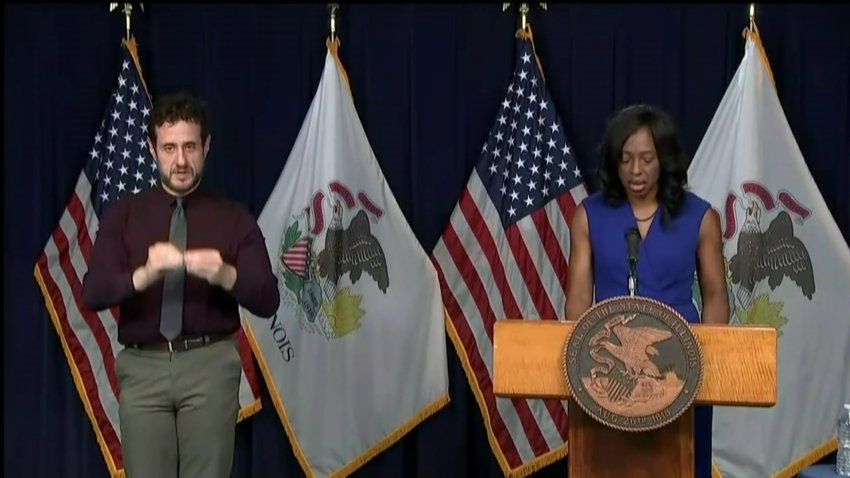
Arwady pointed to several potential factors that could influence whether masks will still be required after a vaccine begins mass production, including making that vaccine available to enough individuals to make it an effective method of stopping the spread of the virus, and potential complications in researching the treatment that could prevent some individuals from getting the vaccine after it begins to be produced.
“There probably will be some people who decide not to get vaccinated,” she said. “There will probably be some people who are waiting on trials, like pregnant people for example. For all of these reasons, we’re going to need to continue to do the things that protect each other while we continue (down this path).”
Arwady said that realistically residents should expect the coronavirus to be an issue for at least a few more years as more treatments and a potential vaccine continue to be developed, and that the CDPH is planning ahead for the next two-to-three years when devising protocols and policies to help combat the virus.
“I wish I could say that COVID were going to be over shortly, but I can’t,” she said. “This is going to be a couple of years, realistically.”
Numerous drug manufacturers are beginning to move forward with trials for potential coronavirus vaccines, and health officials have expressed hope that those trials could be completed, paving the way for the beginning of mass production of the treatments, by the end of the year or in the early part of 2021.
Indiana Not Added to Chicago's Travel Order Yet, But It's Close
Indiana is one of few Midwest states not currently listed under Chicago's travel order, but that could change, the city's top public health official said Tuesday.
Already, Wisconsin, Missouri and Iowa have been added to the order, which requires anyone visiting or returning to the city from certain states to quarantine for 14 days.
Indiana remains, however, one of several states on the cusp of being added to the list, which currently sits at 22 states. States are added to the list if they have "a case rate greater than 15 new COVID-19 cases per 100,000 resident population, per day, over a 7-day rolling average."
"They are in the 10-15 range so we certainly are watching to see what happens," Chicago Department of Public Health Commissioner Dr. Allison Arwady said Tuesday. "I think it's not by accident that if you look in the last week where are we seeing in Chicago some of our highest percent positivity, some of our highest cases, they're down in the zip codes that border Indiana, where we know that right over the border percent positivity is much much higher, number of cases per population is much higher. It's a risk, but we chose that cutoff for a reason and people will go on and off that list when or if they either hit or come off that cutoff."
Indiana reported 809 new coronavirus cases Tuesday along with 16 deaths related to the virus, according to the state's health department. The state's positivity rate sat at 8.9% as of Tuesday.

Illinois Added to New York's List of States Requiring Quarantine
Illinois was one of three states added to New York, New Jersey and Connecticut's joint list of states requiring travelers to quarantine for 14 days upon arrival, New York Gov. Andrew Cuomo said Tuesday.
Illinois, Kentucky and Minnesota, plus Washington, D.C., and Puerto Rico, were among the latest newcomers to the quarantine-restricted list, a joint effort announced last month by Govs. Cuomo, Phil Murphy and Ned Lamont to protect the tri-state's progress against the virus, NBC New York reported.
Tuesday's addition brought New York's order to a total of 34 states, including: Alabama, Alaska, Arkansas, Arizona, California, Delaware, Florida, Georgia, Indiana, Iowa, Idaho, Kansas, Louisiana, Maryland, Mississippi, Missouri, Montana, North Dakota, Nebraska, North Carolina, New Mexico, Nevada, Ohio, Oklahoma, South Carolina, Tennessee, Texas, Utah, Virginia, Washington and Wisconsin.
According to the quarantine guidelines, travelers coming into the tri-state area from states averaging daily positive test rates of 10 percent or 10 new cases per 100,000 residents over a seven-day rolling period must self-isolate.
Cuomo recently implemented a new mandatory health form for travelers landing at New York's airports to try to better enforce compliance with the quarantine in the Big Apple.
Failure to submit the form, which is also required for hotspot travelers who arrive in New York by other transmit means, could result in a $2,000 fine. The governor initially said hotel clerks or business partners could alert officials about violations, and that police officers who pull over out-of-state individuals for traffic infractions could enforce quarantine rules. It's not clear how many in total have been fined.
4 States Added to Chicago Travel Order
Four states, including Wisconsin, were added to Chicago's emergency travel order Tuesday, requiring anyone visiting or returning to the city from one of now 22 states to self-quarantine for 14 days.
Wisconsin, Missouri, North Dakota and Nebraska are all being added to the order, effective Friday, according to Mayor Lori Lightfoot's office.
Chicago's mayor announced Monday that Wisconsin was being added to the list this week, but noted that the city was also watching all its neighbors "very carefully."
"I think Chicago, we are doing well because we were extremely prudent when we started to reopen up," Lightfoot said. "We didn't go as large with capacity, for example, as other areas across the country. So what we're seeing is cities and towns, particularly across the south through the southwest and on to California are really having significant struggles now because many of those communities took a very different approach to the one that Chicago took. We're also seeing an increase in states around us. Wisconsin, for example, is going to go on our quarantine list later this week."
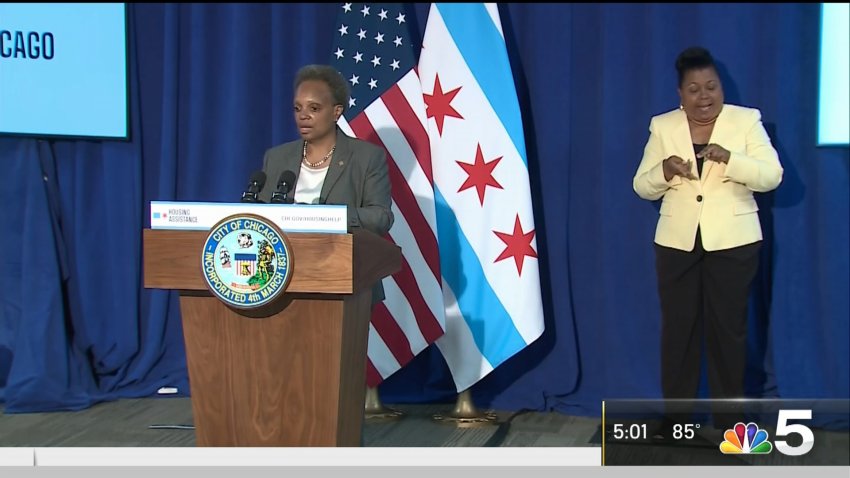
The city's travel order is evaluated every Tuesday, with any additions taking effect the following Friday. States are added to the list if they have "a case rate greater than 15 new COVID-19 cases per 100,000 resident population, per day, over a 7-day rolling average."
Recent additions to the order include Kansas, Oklahoma and Iowa.
Other states included are: Alabama, Arkansas, Arizona, California, Florida, Georgia, Idaho, Louisiana, Mississippi, North Carolina, Nevada, South Carolina, Tennessee, Texas, and Utah.

